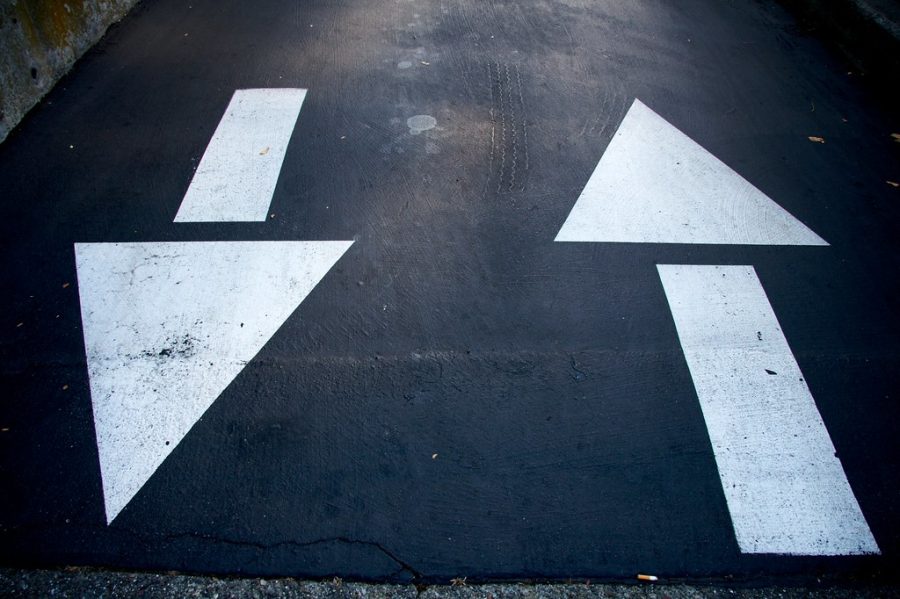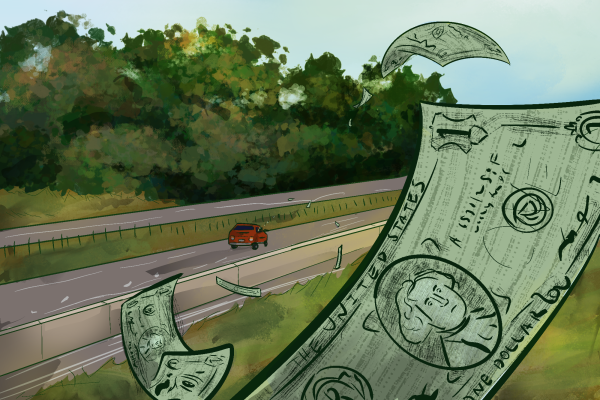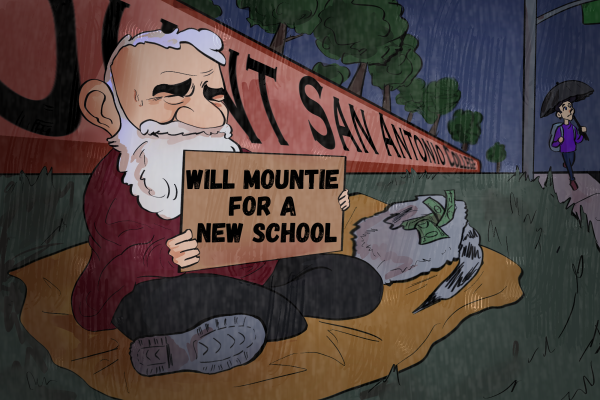Opinion: Indecisiveness – my biggest pet peeve
Live by the courage of your conviction!
Decisions, decisions, decisions. It can be overwhelming, but you can’t run from them forever. Photo courtesy Jeremy Brooks/Flickr
People who constantly change their minds and are indecisive about everything should never make decisions.
Sounds harsh, but reality check: indecision is detrimental to your health.
The impact of this type of behavior is much greater when trying to make a decision about something important in life. Take finding the right life partner for example. The anxiety surrounding the fear of making the wrong decision about “the one” could be crippling.
“They’re just a friend. But I love them so much and don’t want to lose them. What if this goes wrong? What if I’m not good enough?”
Even on a simpler level, indecision can lead to conflict and uncomfortable dialogue with people you’re close to.
“What do you want to eat?”
“Can we get Chick-fil-A?”
“Sure, let’s go.”
Goes to Chick-fil-A. Orders the food. They see the food.
“Actually, I wanted McDonalds”
“Why didn’t you say that from the beginning?!”
And we’ve all been out having fun, and that one person who you had to convince to come and took the longest to get ready is starting to regret going out at all.
While patience and understanding have long been two qualities overlooked and underappreciated, being indecisive is a poor leadership quality, builds bad mental habits and is detrimental to your health. Dr. Tchiki Davis, a behavioral coach and psychology doctor at UC Berkeley, believes indecisiveness is a maladaptive or dysfunctional personality trait that correlates with anxiety, depression and other conditions.
Davis found that childhood trauma alters brain patterns involved in decision-making. Meaning, young adults who experienced traumatic levels of stress as children were unable to evaluate risks associated with decision-making processes. Simply put, stressful environments inhibited their ability to make sound decisions. While there may be a reason some people are more indecisive than others, it is frustrating nonetheless. Especially in a group setting.
According to Psychology Today, indecision leads to anxiety, worry, regret, shame, rumination and ultimately negatively impacts one’s quality of life and well-being. As Dr. Joseph Ferrari explained in his article, “Indecision in turn can cause procrastination, but procrastination here serves as a coping mechanism for the problem of making a difficult and important decision, and the pessimism about making a good decision that their future self will not regret.”
Indecisiveness has been linked to neuroticism in research. Neurotic individuals tend to ponder about anything and everything that could possibly go wrong. Delaying or avoiding decision-making can be thought of as a strategy to delay or avoid the imaginary negative consequences altogether. Unfortunately, this is only a short-term fix for the anxiety of making the decision. Essentially you’re punting on a decision only to face it later on.
For some, the thought of making a tough decision causes panic and anxiety. That’s because the link between indecisiveness and anxiety is a two-way phenomenon. Not only is making a decision known to induce anxiety, but feeling anxious can also prevent you from behaving decisively. This double-sided regulation might be due to the high connectivity of the prefrontal cortex with the amygdala, which is the brain region that mediates fear and anxiety.
When people feel anxious, they might feel unable to think straight. They may also be less confident about how others evaluate their options. Similarly, when making a tough decision, the importance of the situation may stress the individual out and may make them feel anxious about making a mistake. It’s a self-fulfilling loop of failure, anxiety and indecisiveness.
The best leaders have initiative and take action regardless of circumstance. Indecisiveness negatively affects these behaviors. No one wants to learn bad habits and unlearning them is twice as hard to do.
Kobe Bryant is one of the fiercest and greatest athletes to examine. He is exemplary in commitment, takes control of his life by placing the responsibility, blame, and credit for everything in his life on his shoulders. Most people are familiar with the Mamba Mentality and think it translates only to sports.
The essence of Mamba Mentality is to achieve the best version of yourself. The five pillars of his legendary mindset – passion, obsession, relentlessness, resiliency and fearlessness. All five pillars are interconnected and dread the idea of fear. With those five traits, fear and anxiety are removed through preparation and obsession.
Sure, we all aren’t as intense and maniacal as Bryant, but it’s true. Never go through life half-speed or half-hearted and expect to get the full experience of life.
Seldom in life does it come knocking at your door and you’re ready for it. Ready to embrace whatever adversity, challenges or criticism. When it calls, answer because someone else will.
Life doesn’t present many opportunities to control the driver’s seat so never hesitate to take control of the wheel.

Email: [email protected]












